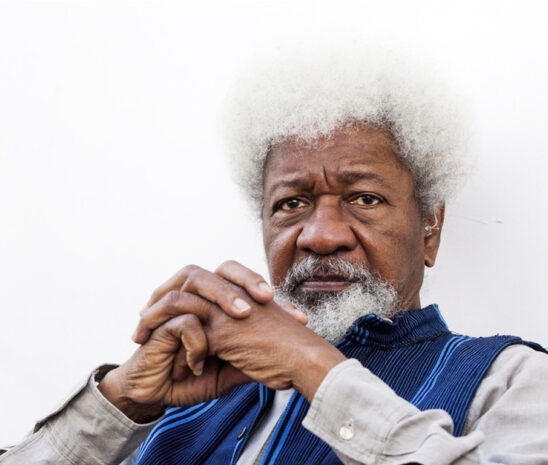
PEN International Dialogue At LABAF
In the world of literature, some works stand out not only for their artistic merit but for their resonance with reality. Wole Soyinka’s iconic poem, Abiku, is one such piece. It transcends the boundaries of fiction, becoming a lens through which we can examine Nigeria’s ongoing political and social challenges. By exploring the Yoruba myth of a restless spirit-child— one who returns repeatedly to torment a family—Soyinka taps into a symbolic narrative that mirrors the nation’s tragic cycle of hope and despair.
Abiku is no ordinary child. He is elusive, refusing to settle, choosing instead to re-enter life only to die again and again. This endless cycle of rebirth in the poem is haunting, drawing his family into a perpetual state of anticipation and grief. But when we look beyond the myth, Abiku emerges as more than folklore. The figure becomes a metaphor for Nigeria itself – a nation caught in the throes of repeated crises, a “child” unable to grow into a mature and stable state.
Abiku as a Reflection of Nigeria’s Challenges
If we examine Abiku in the context of Nigeria’s turbulent history, we see the poem reflecting the nation’s struggle to establish a cohesive identity. Since independence, Nigeria has weathered cycles of hope, upheaval, and despair: from independence to civil war, from military rule to democracy, each phase laden with promise, only to end in disappointment. This recurring pattern feels eerily like the tale of the Abiku spirit-child who returns each time, raising hopes, only to bring further heartache.
Soyinka penned Abiku during a period when Nigeria’s post-independence euphoria had already begun to fade. Ethnic tensions, political corruption, and foreign interference soon gave way to chaos, culminating in the Nigerian Civil War. The trauma of that war remains unaddressed, and Nigeria’s citizens, much like the grieving family in the poem, are left yearning for stability while grappling with repeated betrayals from their leaders.
The Allegory of the Abiku Child
Soyinka’s use of Abiku goes beyond the personal tragedy of a spirit-child. It serves as an allegory for the collective suffering of a nation trapped in a cycle of unfulfilled potential. Just as the Abiku taunts and torments his family, so too do corrupt governments dangle promises of reform, only to shatter those promises time and again. This cycle breeds a false hope, as each new administration appears poised to break the mold, only to regress to the same failures that have plagued Nigeria for decades.
There is an almost seductive allure in this cycle. Families of Abiku children hold onto the hope that one day, this child will stay. Similarly, Nigerians— and citizens of other nations plagued by instability—cling to the hope that the next leader, the next administration, or the next set of reforms will bring lasting change. Soyinka’s poem reflects this tension, capturing the echo of citizens’ expectations alongside the wounds of disappointment.
The Unmaking of a Nation
To speak of Nigeria’s “unmaking” is to recognize how corruption, violence, and shortsighted governance systematically dismantle the nation’s potential. Like the Abiku child who slowly wears down his family, Nigeria’s endless cycle of corruption and instability erodes the nation’s spirit. Each betrayal chips away at the promise of progress, leaving behind only the ruins of what could have been.
In Abiku, Soyinka captures not only Nigeria’s struggle but also the broader experience of postcolonial nations wrestling with identity and leadership failures. This cycle of destruction and rebirth raises difficult questions about national identity. Who are we when our leaders fail us, when promises are perpetually deferred, and when hope seems to fester, as Langston Hughes once wrote?
Between Myth and Reality: Breaking the Cycle
Soyinka’s Abiku does not offer solutions or promise salvation. Instead, it forces us to confront the torment of living within a cycle that seems unbreakable. Here lies Soyinka’s genius—not in offering an escape but in mirroring the brutal reality of so many African nations. Nigeria, like the Abiku child, refuses to be defined by past failures, yet remains trapped by them. The resilience of its people and their persistent hope are remarkable, but they beg the question: How do we break this cycle?
As citizens, do we choose to remain passive, like the family in the poem, forever hoping that this time, our nation will survive the latest onslaught of misgovernance? Or will we rise up to disrupt the patterns and shape a future distinct from the past? Soyinka’s poem urges us to ask these hard questions, reminding us that without fundamental change, we are doomed to repeat the same patterns. The child will continue to return until we address the underlying issues that perpetuate this cycle.
Conclusion: The Legacy of Abiku
The Abiku’s voice in the poem is one of boastful indifference, revelling in a sense of power that is both cruel and detached much like our politicians who taunt Nigerians who were groaning under the yoke of poverty cuased by the uncushioned removal of oil subsidies and other anti people strategies. “Go on stike if you like, we are and families will continue to live large.”
It’s uncanny, but not to name any names; we simply need to look at the brigand that constitutes our political class today to see a cohort of abikus on display. Soyinka’s tone in this poem underscores the inevitability of pain and loss, as the child is unfeeling, drawing satisfaction from the suffering of others while remaining untouched by it. The victims of this cycle of birth and death are left in sorrow and despair, contrasting sharply with the Abiku’s sense of omnipotence in the same way that Nigerains remain stunned by the clamour our politicians claims to omnipotence, “Emi lo kan, e lo fokan bale, agbado wa!”
In Abiku, Soyinka challenges us to see beyond superstition, urging us to view the character as a symbol of the relentless cycles of human and political life. The poem serves as a stark reminder that without accountability, nations like Nigeria may remain forever locked in an endless loop of broken promises and deferred dreams. The Abiku child will return, each time more haunting than before, unless we find the courage to break free and build a lasting legacy of hope and progress.
